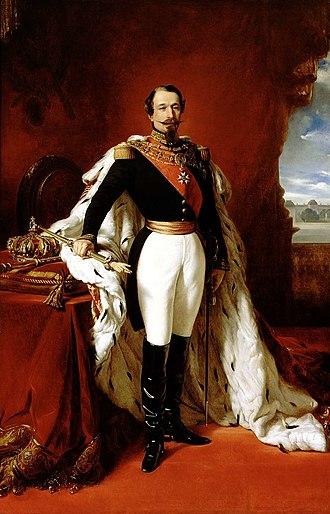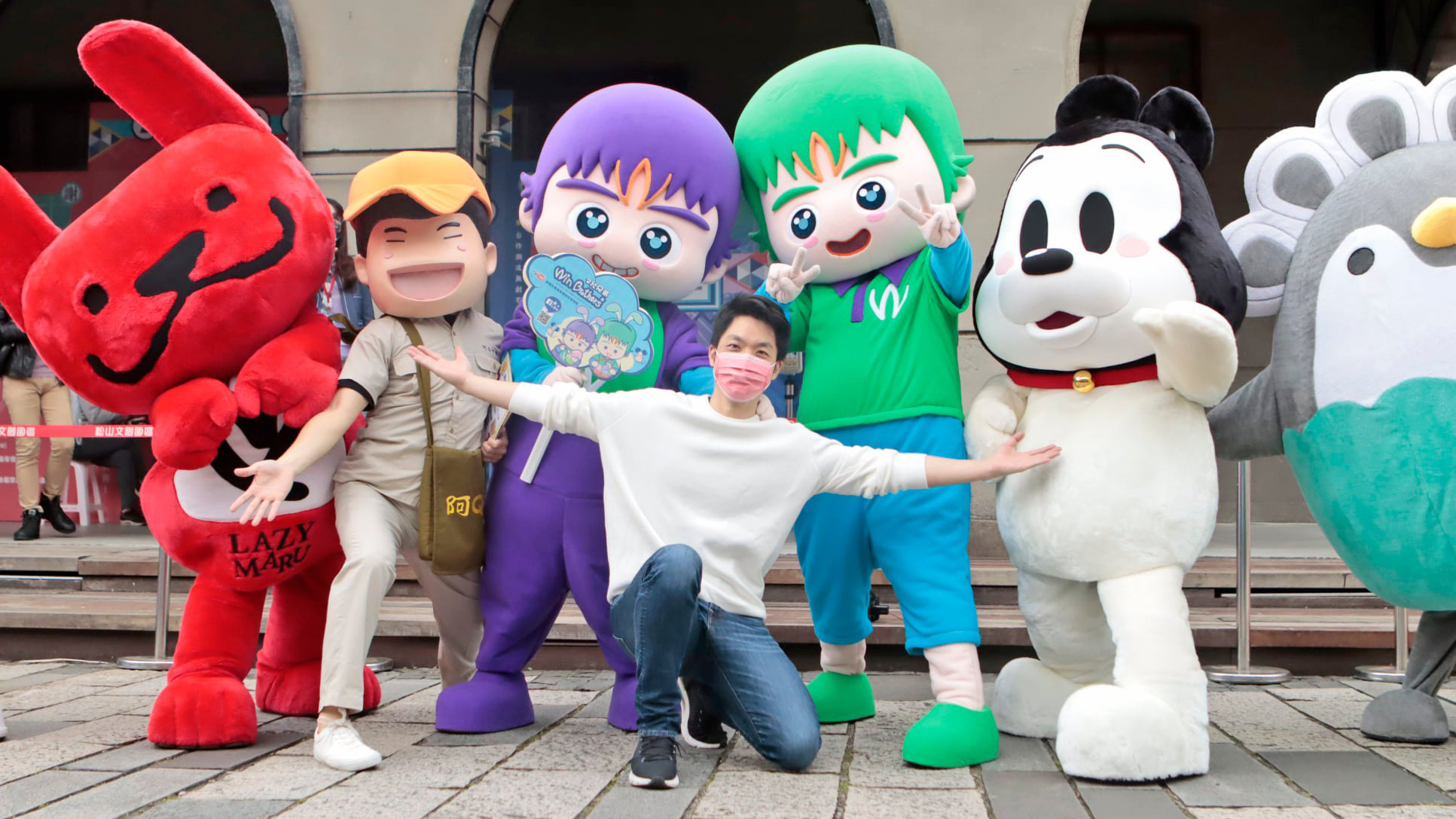With the election victory of “Bongbong” Marcos Jr.—the son of former military dictator Ferdinand Marcos—the Philippines joins the surprisingly large number of Asia Pacific states led by the children or descendants of dictators and other powerful political figures. China’s ruler, Xi Jinping, is the son of senior Chinese Communist Party official Xi Zhongsun. He too is a second-generation “princeling” in that sense.
Not too long ago, South Korea was led by Park Geun-hye, the daughter of military strongman Park Chung-hee (she was later found guilty on corruption charges, impeached and sent to prison). In Japan, the recently assassinated former prime minister Shinzo Abe was the grandson of Nobusuke Kishi (prime minister from 1957-1960) and and the grand-nephew of Eisaku Satō (prime minister from 1964-1972). . The family is said to be descended from a samurai clan, so it’s unsurprising that Abe’s politics emphasized nostalgia for the glories of the Japanese empire.
The children of dictators often attempt to evoke nostalgia for the good old days, when, they allege, the economic situation was better, and things were more orderly. Authoritarian nostalgia, as it were. True or false, this appeal to better times may attract young people who never experienced the authoritarian period for themselves.
But Taiwan, it seems, has bucked this trend. Current president Tsai Ing-wen of the Democratic Progressive Party, according to some claims, is the only female head of state in Asia not born into a political family.
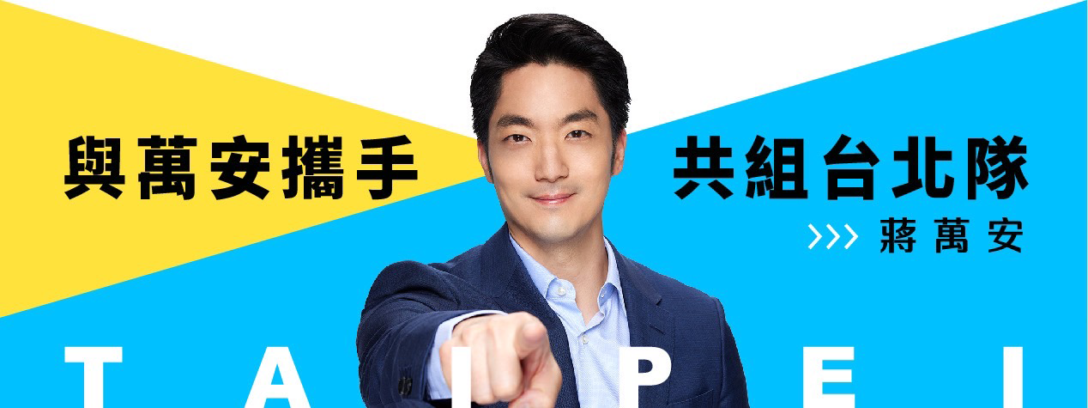 Chiang Wan-an. Photo credit: Chiang Wan-an/Facebook
Chiang Wan-an. Photo credit: Chiang Wan-an/FacebookWith elections coming up in Taiwan later this year, however, the shadow of authoritarian nostalgia is closer than it may seem. The Kuomintang–the former authoritarian party in Taiwan, which remains active in politics as Taiwan’s second major party–is running Chiang Wan-an, the illegitimate great-grandson of former dictator Chiang Kai-shek, for Taipei mayor. Chiang is the son of John Chiang, a former Kuomintang legislator, and currently holds his father’s former seat.
Taipei’s mayoralty is traditionally seen as a stepping stone to the presidency; two of Taiwan’s four democratically elected presidents to date first served as mayor of the capital before running for president. And so, one wonders, when Bongbong Marcos won office, did Chiang Wan-an ask himself, “Is it also my turn?” Certainly, after Bongbong Marcos’s victory, pro-China outlets in Taiwan called on Chiang to have the same courage as Marcos to defend his father’s legacy.
At age 43, Chiang is one of the Kuomintang’s youngest politicians—and it’s frequently remarked, one of its handsomest. The Kuomintang had less than 9,000 members under 40 in November 2020, and the party has struggled to appeal to younger voters. Consequently the choice of Chiang for the Kuomintang’s Taipei mayoral candidate is probably a smart one.
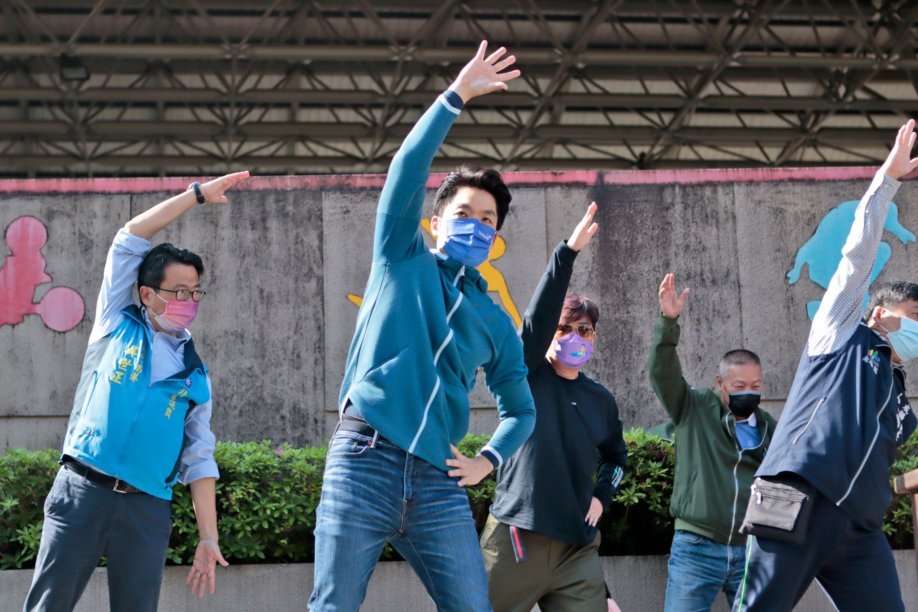 Chiang Wan-an. Photo credit: Chiang Wan-an/Facebook
Chiang Wan-an. Photo credit: Chiang Wan-an/FacebookOn some issues, such as support for gay marriage and labor rights, Chiang is more progressive than other members of his party, though the Kuomintang’s pro-China and pro-unification views appear to have alienated the majority of Taiwanese youth. At the same time, as the literal great-grandson of Chiang Kai-shek, he can appeal to party traditionalists and hardliners. Kuomintang politicians cognizant of the need to change the party’s image have long clashed with party traditionalists resisting capitulation on its key values. Chiang is capable of appealing to both sides of this split.
Authoritarian symbols from the rule of Chiang Kai-shek and his son, Chiang Ching-kuo, such as statues and monuments, are still strewn across Taiwan, and are still causing political strife and heated debate. The Transitional Justice Commission, which was set up to investigate unsolved crimes committed by the Kuomintang during the authoritarian period, recommended the removal of the 3.5 meter statue of Chiang at the Chiang Kai-shek Memorial–one of the largest public structures in Taiwan’s capital city. Kuomintang diehards are likely to resist this move.
And yet, amid passionate public debate about what to do with these statues, the Kuomintang still plans to run Chiang’s great-grandson for a position traditionally viewed as one step away from the presidency. In the past, the candidate has mocked calls to remove the Chiang statue from the Chiang Kai-shek Memorial, while at other times supporting calls to rename the hall.
The political capital that can be gained by an association with the authoritarian period is uncertain. Chiang has sometimes demurred on the issue of his ancestry, claiming that he did not know that he was an illegitimate descendant of Chiang Kai-shek while growing up. But embracing the Chiang legacy was a deliberate political move on the part of Chiang Wan-an and his father, John Chiang, whose original surname was Chang, because of their illegitimate status; they decided to change their last name to Chiang as part of their effort to pursue public office..
The two men have so far failed to respond to allegations that they are not in fact descendants of Chiang. Perhaps Chiang Wan-an is best characterized as another Taiwanese politician with murky heritage claims, like King Pu-tsung of the Kuomintang, former secretary-general of the National Security Council, who claims to be a descendant of the House of Aisin-Gioro, the ruling family of the Qing dynasty.
The Kuomintang built its rule on a phenomenon that some have characterized as “Bonapartist”, a category borrowed from Marx to describe authoritarian rule backed by popular support. Marx named the phenomenon for Louis Napoleon, the nephew of Napoleon Bonaparte, who ran for president of France on little besides his name. Perhaps so too with Chiang Wan-an, who has been criticized as lacking in political substance, a nonentity aside from his famous name and good looks.
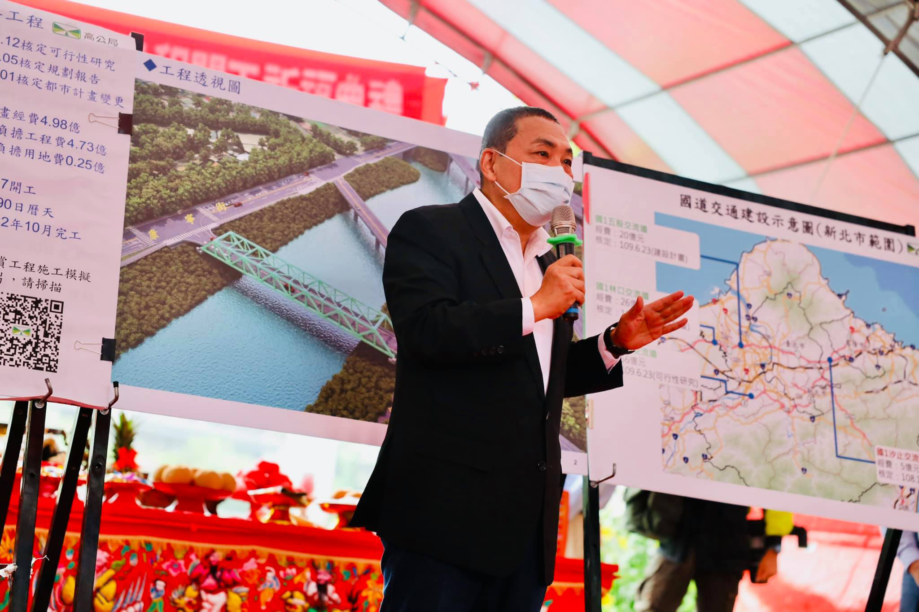 Hou You-yi. Photo credit: Hou You-yi/Facebook
Hou You-yi. Photo credit: Hou You-yi/FacebookOr it may be that Taiwan has not yet sufficiently dealt with the legacy of its authoritarian past. As we speak, the New Taipei mayor is Hou You-yi, a former police official who oversaw the series of events that led to journalist and political dissident Deng Nan-jung’s self-immolation. This did not disqualify Hou’s candidacy as the Kuomintang’s New Taipei mayoral candidate–or prevent him from winning.
Currently, Hou is one of Taiwan’s most popular politicians, and is frequently mentioned as a possible presidential candidate for the Kuomintang in 2024. Who knows? It could be Hou versus Chiang for the Kuomintang’s presidential nomination. If so, we might have either a cop responsible for the deaths of political dissidents, or the great-grandson of the former dictator as president. The specter of authoritarianism still haunts contemporary democratic Taiwan.
Though he was elected to office as president, Louis Napoleon later declared himself emperor as Napoleon III, appealing to the glories of his uncle and overturning democratic institutions. Louis Napoleon can be understood as something of a proto-fascist figure; the first modern dictator. Perhaps the tale of Louis Napoleon should be taken by Taiwan as a warning.
